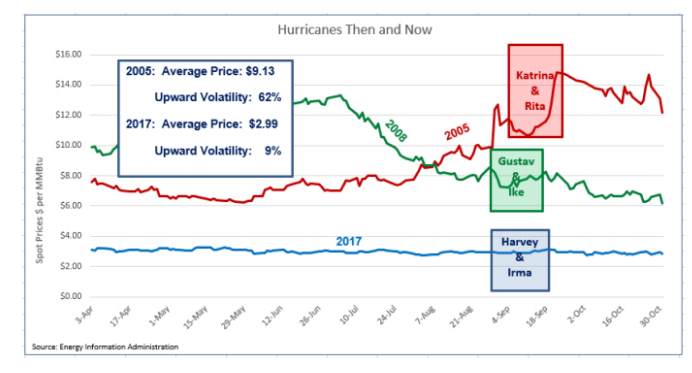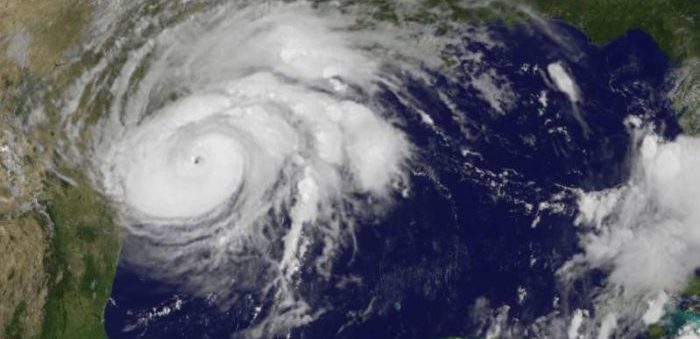A new report prepared by RNB Energy for the Natural Gas Council studies in detail the natural gas industry’s performance through three significant weather events in 2017 and 2018 -two hurricanes and the combination of the Northeast freeze and the Bomb Cyclone. The study confirmed the natural gas industry’s remarkable resilience to wide variety of severe weather.
Review of 2017-2018 events
- Gulf Storms and Flooding: Hurricane Harvey represented a traditional Gulf of Mexico hurricane affecting offshore production and is remembered for flooding and immobilizing the fourth largest US city and the headquarters of much of the natural gas pipeline industry. Extreme
- Wind and Flooding in Populated Areas: Hurricane Irma was a fierce South Atlantic and Gulf storm moving the length of the heavily populated state of Florida, which relies on natural gas for power generation more than any other state in the US, with some extended impact north into Georgia and the Southeast.
- Deep Freeze and Extreme Winter Conditions: The Bomb Cyclone is shorthand for a historic Northeast deep freeze, exacerbated by a snow and ice hurricane affecting Northeast production areas and the most densely populated region in the US, the East coast.

According to the report, reliability and resilience were demonstrated through the continued service and availability of natural gas despite threatening weather and outages on the electric grid. In the rare instances of natural gas service interruption, the industry demonstrated rapid recovery, thereby minimizing impacts to a negligible amount.
The natural gas industry’s reliability and resilience may be attributed to four key characteristics:
- Underground Facilities: The extensive underground location of facilities protects them from weather impacts;
- Line Pack: Transmission pipelines incidentally store gas at pressure (called “Line Pack”) which provides a buffer that can mitigate the effects of abnormal operating conditions;
- Network Reliability: The network configuration of the pipeline industry means that, in the event of an outage, there is usually a “work-around” that allows continued service to LDCs and directlyconnected consumers; and
- Confined Impact: Physical configuration limits impact of a disruption; not susceptible to ‘cascading events’ such as those on electric transmission systems.
The findings in this study further demonstrate the critical role that contractual agreements serve in enhancing reliability of natural gas service. The Bomb Cyclone spiked spot prices for natural gas temporarily, causing some power generation to switch to alternative fuel sources to minimize cost. Entities such as local distribution companies, that contract for firm natural gas service, were not impacted by these price swings. The findings underscore the significance of appropriate service contracts to meet the needs of the customer.
Explore more herebelow:































































